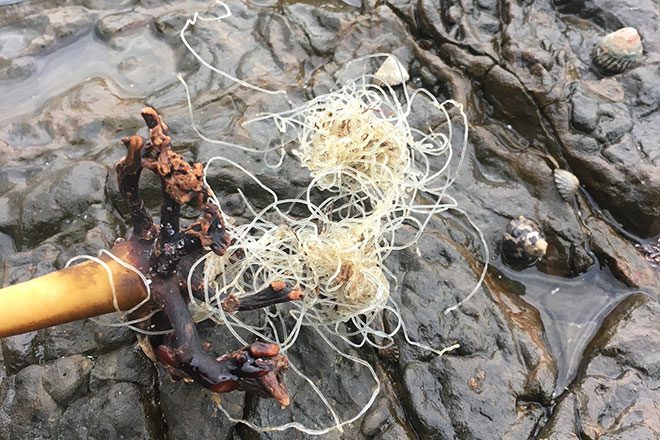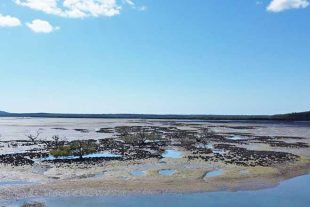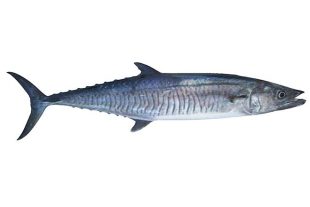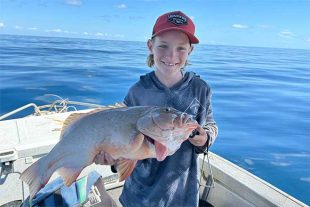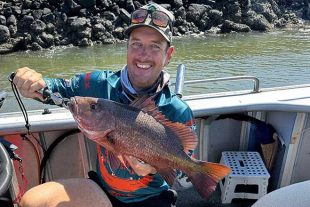With summer finally here, it is likely that popular fishing locations will start to see an increase in fishing activity and in some cases, unfortunately, that means more litter and lost fishing gear.
Fishing related litter has not only been identified as an important environmental threat in NSW, but it can contribute to poor recreational fishing social licence amongst the community. Although the volume of fishing related debris may not be as high as other forms of debris, it can have a bigger impact on wildlife that interact with it.
Birds, turtles, seals, platypus and other aquatic animals can be accidentally injured by discarded fishing tackle, including fishing line, hooks and sinkers, lures, traps and nets. At popular fishing sites, it can also impact visitors and their dogs.
No one likes the sight of litter when spending a day by the water so remember to always dispose of rubbish, bait and unwanted tackle – even if it is not yours!
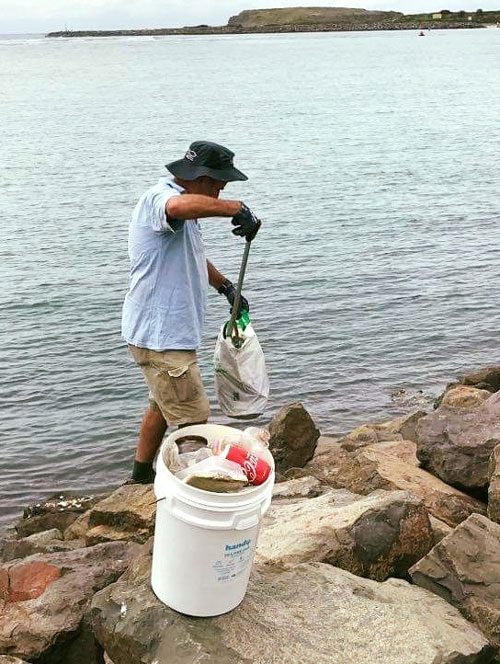
Here’s some tips to help reduce fishing-based litter and debris:
- Don’t carry packaging around with you – unwrap new fishing tackle before you go to reduce the chance of the packaging ending up in the environment.
- Familiarise yourself with fishing techniques that minimise gear loss and marine litter
- Use the appropriate gear for the location you intend to fish to and master your knot tying skills to reduce the amount of snagged and lost fishing tackle
- Think about the environment you are fishing in – if it’s a snaggy/ reefy environment, think about how you can fish it without snagging – suspend your bait using a float, use only very small weights or no weights at all to keep your bait away from the snags. Or use a sufficiently heavy weight adjacent to the snaggy area to prevent your bait drifting into the structure.
- Always attend your lines, reducing the risk of tackle and line entering being lost and entering the environment.
- Leave no trace – Ensure all litter and fish waste at your fishing spot is taken and disposed of appropriately after every fishing trip.
- If a public bin is overflowing, find another bin or take your rubbish home with you.
- If you are disposing of fishing line at home, it is best to cut the line up into small pieces before putting it in the bin – this reduces the risk of it causing additional problems for birds at landfill sites.
- Go the extra mile and checkout ways in which you can help further (including any locally run ‘Clean Up’ events) with organisations such as Clean Up Australia, OzFish, Tangaroa Blue and Take 3.
And lastly, thank you for being a good citizen and doing the right thing!
 Bush ‘n Beach Fishing Magazine Location reports & tips for fishing, boating, camping, kayaking, 4WDing in Queensland and Northern NSW
Bush ‘n Beach Fishing Magazine Location reports & tips for fishing, boating, camping, kayaking, 4WDing in Queensland and Northern NSW

